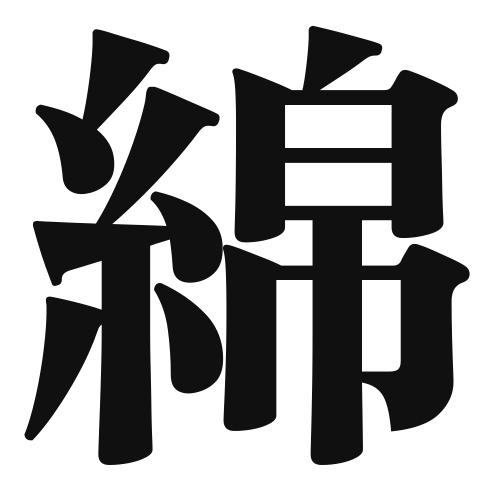1. Overview of Meaning
The kanji “綿” (pronounced “men” or “wata”) means “cotton.” It refers to the soft, fluffy fiber that comes from the cotton plant, commonly used in textiles and clothing.
2. Formation and Radical
Formation of the Kanji: The kanji “綿” is a phonetic-ideographic character (形声文字). It combines the radical for “thread” (糸) on the left, indicating its relation to textiles, with the phonetic component “wen” (meaning “to twist” or “to spin”) on the right.
Radical: The radical of “綿” is 糸 (ito), which is associated with threads and fibers.
3. Examples of Usage
Common Words and Phrases:
- 綿菓子 (わたがし, watagashi) – cotton candy
- 綿製品 (めんせいひん, menseihin) – cotton products
Example Sentences in Daily Conversation:
- このシャツは綿でできています。 (このシャツはめんでできています。) – This shirt is made of cotton.
- 綿菓子は子供たちに人気です。 (わたがしはこどもたちににんきです。) – Cotton candy is popular among children.
4. Synonyms and Antonyms
Similar Kanji:
- 糸 (いと, ito) – thread; while “綿” refers specifically to cotton, “糸” is a more general term for any kind of thread or string.
Antonyms:
- 硬 (こう, kou) – hard; “綿” represents softness, while “硬” indicates hardness.
5. Cultural and Historical Background
Relation to Japanese Culture: Cotton has been an important material in Japan for centuries, used in traditional clothing such as kimono. The cultivation and use of cotton have influenced various aspects of Japanese textile arts.
Proverbs and Idioms:
- 綿のように柔らかい (わたのようにやわらかい) – as soft as cotton; used to describe something very soft or gentle.
